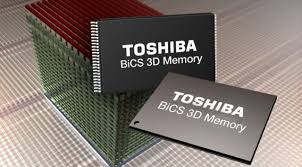
While the future of Toshiba Corp remains uncertain with no progress in talks to sell its chips unit for much-needed cash, but after its auditor signed off on its financial results albeit with criticism of its governance, the Japanese conglomerate has likely avoided immediate delisting.
According to a filing, a "qualified opinion" on Toshiba's results for the year ended March as well as for April-June was given by PriceWaterhouseCoopers Aarata LLC (PwC). That means the auditor broadly vouched for Toshiba's book-keeping.
However, saying that losses at its now bankrupt U.S. nuclear arm Westinghouse were not booked in a timely manner, PwC also issued a rare "adverse opinion" on the firm's internal controls.
Analysts have said it was unclear whether Toshiba could stay listed in the long term regardless of the auditor's endorsement even as the group has struggled to win back shareholder trust since 2015 when it said it had inflated profits over several years.
And in a move which could have led to the delisting of the 140-year-old firm, a report published in Asahi newspaper published last month said that the auditor was considering issuing an adverse opinion only. That would have risked its competitiveness as it would have reduced its ability to raise money for its cash-hungry memory chip business.
While Toshiba disagreed, some Westinghouse-related losses booked in the business year through March 2017 should have been recorded in the previous year, auditor PwC said.
Toshiba would have recorded negative net worth - liabilities exceeding assets - for two consecutive years if the losses were booked as per PwC's opinion. A delisting from the Tokyo Stock Exchange would have bene normally triggered by that.
And in order to decide whether the firm can stay listed, the bourse is currently reviewing Toshiba's governance. But as long as PwC signed off on the results, delisting is unlikely, analysts have said.
But with the firm trying to raise cash by selling its flash memory business - its only division showing significant growth after the sale of its medical devices unit last year, analysts have said Toshiba's long-term prospects are bleak even with the reprieve form the auditors and delisting.
Out of Toshiba's total April-June operating profit of 96.7 billion yen, the chips unit accounted for 94 percent. Toshiba was allowed to raise its full-year earnings outlook as the result represented a leap from the 16.3 billion yen of a year earlier.
While talks about the sale has stalled, but in order to cover the impact of $6.3 billion in liabilities linked to Westinghouse and pay debt, the conglomerate hopes auctioning its chip unit will help.
Toshiba's joint venture partner Western Digital Corp has taken Toshiba to court in addition to lodging its own offer for the chip business and has said any sale would require its consent.
And a consortium including Japanese government-backed funds, private equity firm Bain Capital LP and South Korean chip maker SK Hynix Inc., Toshiba's preferred bidder group, has been unnerved by that development.
(Source:www.reuters.com)
According to a filing, a "qualified opinion" on Toshiba's results for the year ended March as well as for April-June was given by PriceWaterhouseCoopers Aarata LLC (PwC). That means the auditor broadly vouched for Toshiba's book-keeping.
However, saying that losses at its now bankrupt U.S. nuclear arm Westinghouse were not booked in a timely manner, PwC also issued a rare "adverse opinion" on the firm's internal controls.
Analysts have said it was unclear whether Toshiba could stay listed in the long term regardless of the auditor's endorsement even as the group has struggled to win back shareholder trust since 2015 when it said it had inflated profits over several years.
And in a move which could have led to the delisting of the 140-year-old firm, a report published in Asahi newspaper published last month said that the auditor was considering issuing an adverse opinion only. That would have risked its competitiveness as it would have reduced its ability to raise money for its cash-hungry memory chip business.
While Toshiba disagreed, some Westinghouse-related losses booked in the business year through March 2017 should have been recorded in the previous year, auditor PwC said.
Toshiba would have recorded negative net worth - liabilities exceeding assets - for two consecutive years if the losses were booked as per PwC's opinion. A delisting from the Tokyo Stock Exchange would have bene normally triggered by that.
And in order to decide whether the firm can stay listed, the bourse is currently reviewing Toshiba's governance. But as long as PwC signed off on the results, delisting is unlikely, analysts have said.
But with the firm trying to raise cash by selling its flash memory business - its only division showing significant growth after the sale of its medical devices unit last year, analysts have said Toshiba's long-term prospects are bleak even with the reprieve form the auditors and delisting.
Out of Toshiba's total April-June operating profit of 96.7 billion yen, the chips unit accounted for 94 percent. Toshiba was allowed to raise its full-year earnings outlook as the result represented a leap from the 16.3 billion yen of a year earlier.
While talks about the sale has stalled, but in order to cover the impact of $6.3 billion in liabilities linked to Westinghouse and pay debt, the conglomerate hopes auctioning its chip unit will help.
Toshiba's joint venture partner Western Digital Corp has taken Toshiba to court in addition to lodging its own offer for the chip business and has said any sale would require its consent.
And a consortium including Japanese government-backed funds, private equity firm Bain Capital LP and South Korean chip maker SK Hynix Inc., Toshiba's preferred bidder group, has been unnerved by that development.
(Source:www.reuters.com)














